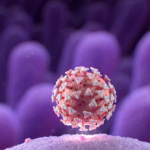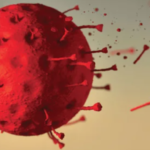As the Public Health physician team that investigates and supports every single occurrence of COVID-19 infection in our province, we feel compelled to tell Nova Scotians how harmful it is to stigmatize people and communities with COVID-19. Individually and collectively, we need to avoid blaming and instead, focus on our common humanity during this trying time.
In the context of COVID-19, social stigma means we are labelling someone with COVID-19 as different from us, and marking that difference as undesirable. Social stigma is often created and heightened in uncertain times, where fear of the unknown can cause us to lash out at people we perceive as being different. ‘Othering’ and disapproval can lead to discrimination and blame.
Since the beginning of this pandemic, we have seen many examples of stigma here in Nova Scotia. On social media, we have seen people name and shame individuals living with COVID-19, inciting fear in the community. Travellers have been discriminated against based on of out-of-province license plates. Some sports organizations have excluded people from their practices on the basis of unproven connections to someone with COVID-19. Police have been called in situations where it is clear that no one was breaking any rules. Rumours have been spread about individuals, and COVID-19 has been used as an excuse to get back at someone for past faults or to discriminate against people of different ethnicities.
History shows us that our human response to uncertainty, fear, economic loss and threats to our health or that of our loved ones, is often to resort to ‘othering.’ This is a new virus we don’t completely understand yet. It is powerful enough to send our loved ones to hospital or even cause them to die. However, we fear getting COVID-19 not only for health reasons. We know that if we get the virus or are a close contact of someone with COVID-19, we will have to isolate away from our families, and will be unable to go to work. For many people this will mean incredible economic hardship.
What’s more, the public health restrictions we must live with during this time are something that none of us would choose as individuals. This heightens the feelings of loss of control, and we look for a place to lay responsibility and blame. We have a whole new set of public health ‘rules,’ and any apparent or perceived failure to follow the rules is met with judgement.
The situations we have witnessed show that some people and communities face even greater harm from COVID stigma than others. This happens when COVID-19 related discrimination targets women, Black, Indigenous, people of colour, the elderly or people living in poverty who are already experiencing the systemic sexism, racism, ageism, classism and other forms of discrimination present in our province.
Social stigma can influence not only the behaviours of individuals, but also how our organizations and systems work. Stereotypes and prejudices can potentially lead to a lack of understanding of community needs, ineffective delivery of services, or inequitable application of enforcement measures. It is not surprising that communities who have experienced systemic discrimination in Nova Scotia should fear that the same will be true in relation to COVID-19.
This virus may be new to humans, but sadly, COVID stigma shows our response to it is not.
As public health physicians, we know that the public health measures we put in place to reduce COVID-19, can also unintentionally worsen stigma. Public Health often focuses messages, testing, and resources on different populations distinguished by factors like age group, geographic community, and occupation. It is a delicate balance with the goal of improving health and minimizing harms. Public health professionals strive to be clear on the intent of actions, ensure they are grounded in the best evidence we have and do our best to prevent or mitigate harm by involving and collaborating with affected communities and groups.
It’s tempting to ignore the fact that COVID stigma exists and is ongoing daily in Nova Scotia, especially if it is something we haven’t experienced or witnessed personally. However, the reality is that COVID stigma has very real outcomes. Two core strategies by which we are currently holding a line against COVID-19 spread in Nova Scotia are testing and contact tracing. However, judgement and harassment related to COVID-19 makes it much harder to engage people in testing. Fear of blame and discrimination stifles the willingness of people to share the personal information that is absolutely essential for effective contact tracing. COVID stigma and discrimination threatens the very success and relative safety we have collectively worked so hard to achieve. If we don’t curb COVID stigma, we run the risk of seeing COVID-19 increase in our province.
As we continue to live with COVID-19, we urge you to find time to pause and reflect prior to acting. We all need to consider our intentions, question if we have all the evidence, and think on the potential for harm in what we are about to do – be it in a conversation with neighbours and friends, in line at the grocery store, in community, or in our organizations. If we act judgementally or if we fail to speak up to support each other when witnessing blaming and shaming, or if we stop questioning our assumptions and approaches, we cannot expect to maintain our relative safety during this pandemic. As Dr. Strang has said, when we look back at the pandemic, we want to be able to say that in Nova Scotia, “love spread more quickly than any virus ever could,” and that was what helped us stay safe together.
Lynda Earle, Public Health Physician
Daniela Kempkens, Public Health Physician
Jeni Cram, Public Health Physician
Alkesh Patel, Public Health Physician
Claudia Sarbu, Public Health Physician
Ryan Sommers, Public Health Physician
Austin Zygmunt, Public Health & Preventive Medicine Resident



